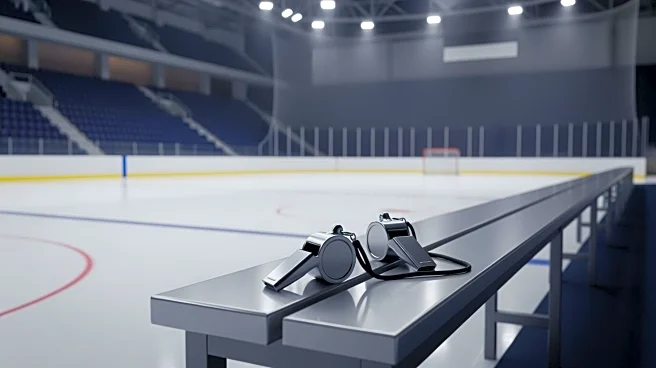What's Happening?
The development of young players in the NHL is heavily influenced by team strategies and organizational plans, according to insights shared by NHL coaches. The article highlights the experiences of several
young players, including Brady Martin, Barrett Hayton, Morgan Frost, and Rasmus Sandin, who have transitioned from junior levels to professional play. Coaches emphasize the importance of physical and mental maturity in determining the readiness of players to advance to the NHL. The article also discusses the evolving communication dynamics between coaches and players, noting that modern technology facilitates better feedback and development opportunities.
Why It's Important?
The development of young players is crucial for the long-term success of NHL teams. By understanding the factors that contribute to successful transitions from junior to professional levels, teams can better manage their talent pipelines. This has implications for team performance, player career longevity, and the overall competitiveness of the league. The insights shared by coaches highlight the need for tailored development plans that consider individual player maturity and readiness, which can lead to more effective team building and strategic planning.
What's Next?
As teams continue to refine their development strategies, there may be increased focus on personalized training and mentorship programs for young players. Coaches and management might explore new technologies and methodologies to enhance player development, potentially leading to more rapid advancements in player skills and team performance. The ongoing dialogue between players and coaches is likely to evolve, fostering a more collaborative environment that supports player growth and team success.
Beyond the Headlines
The shift towards more open communication and personalized development plans reflects broader changes in sports management and coaching philosophies. This approach not only benefits player development but also contributes to a more inclusive and supportive team culture. As these practices become more widespread, they could influence coaching strategies in other sports, promoting a holistic approach to athlete development.











